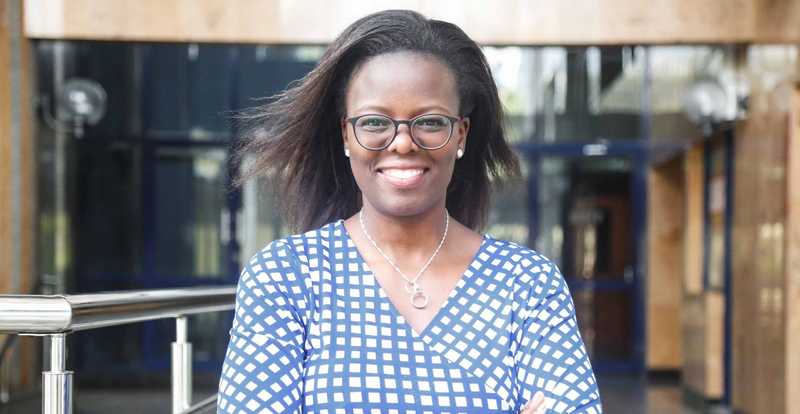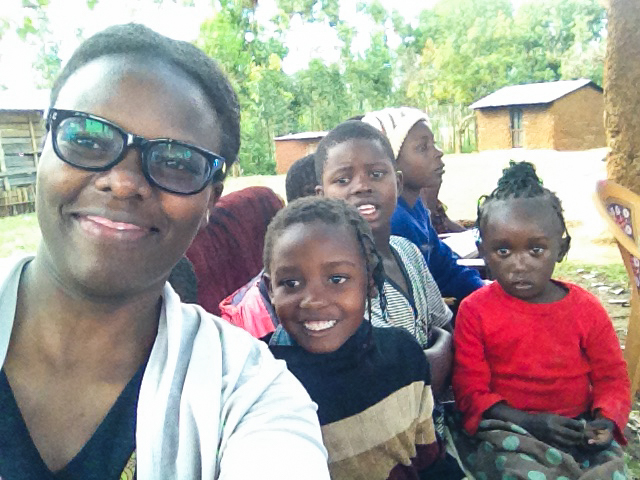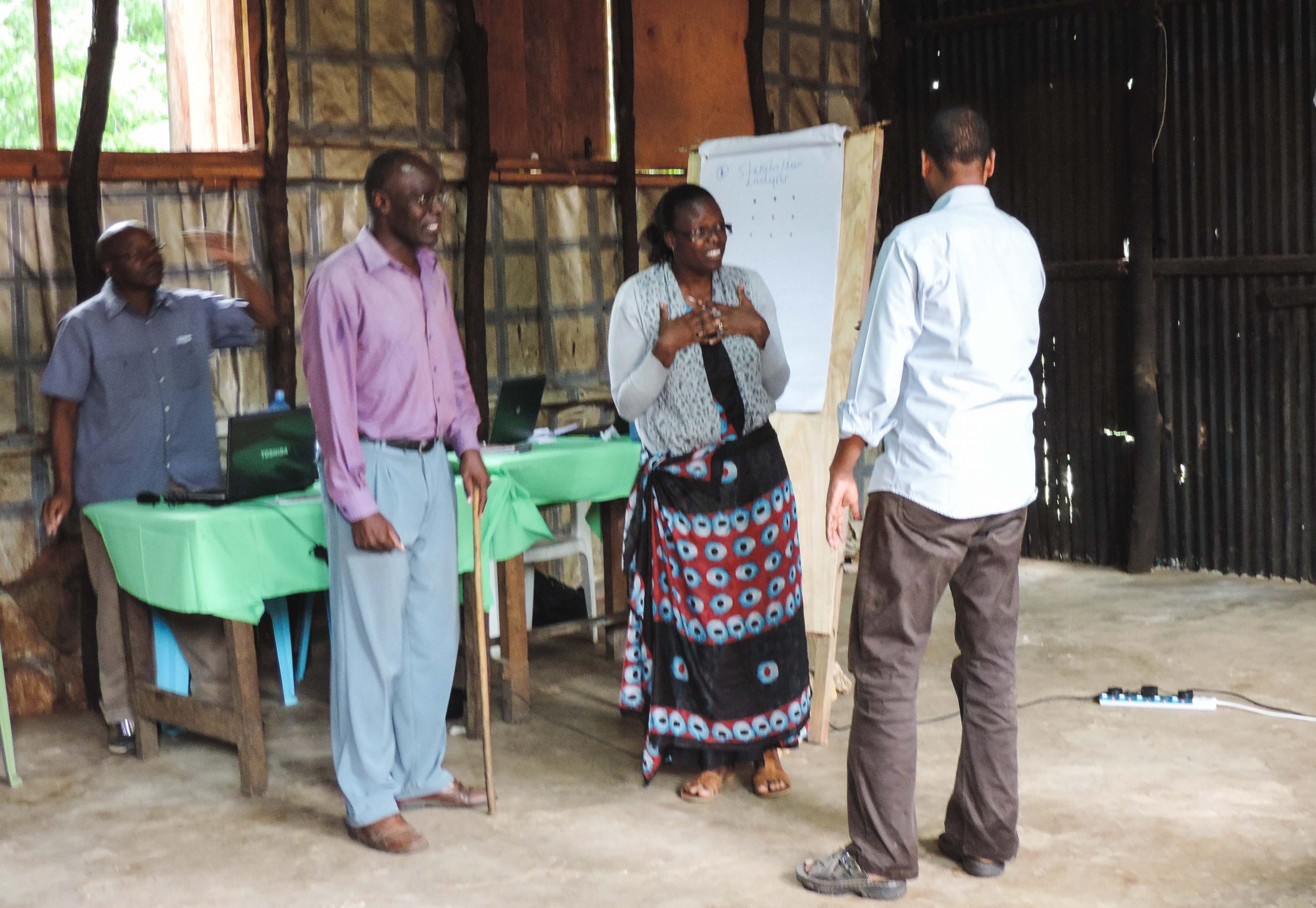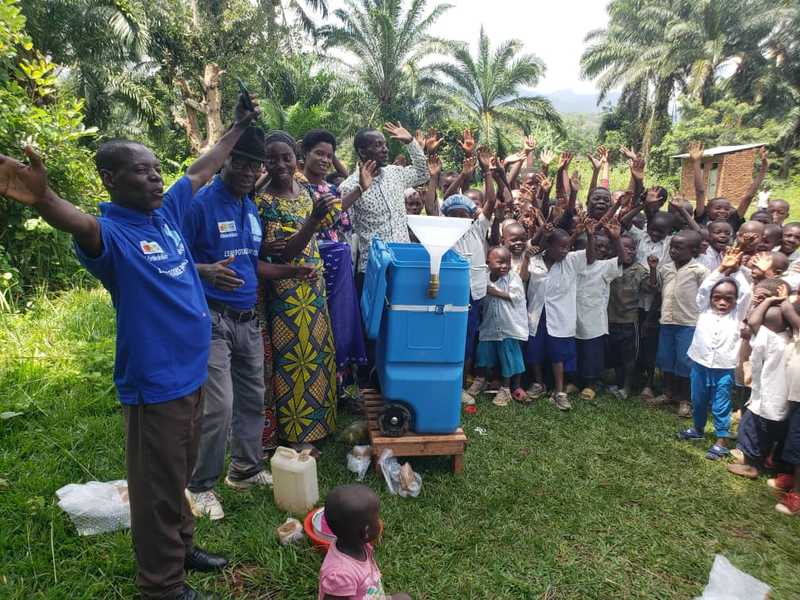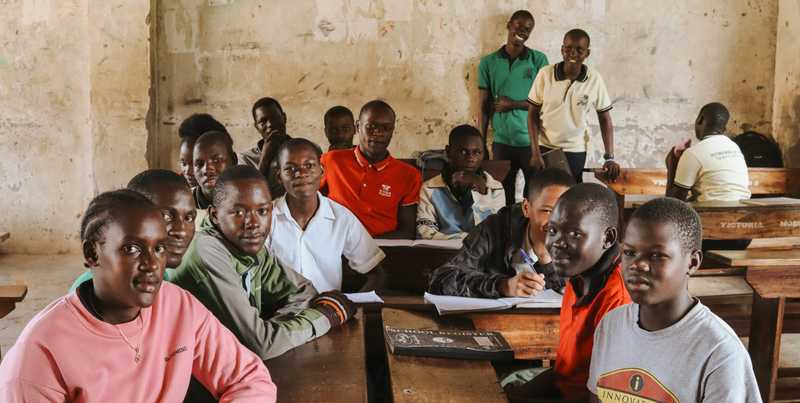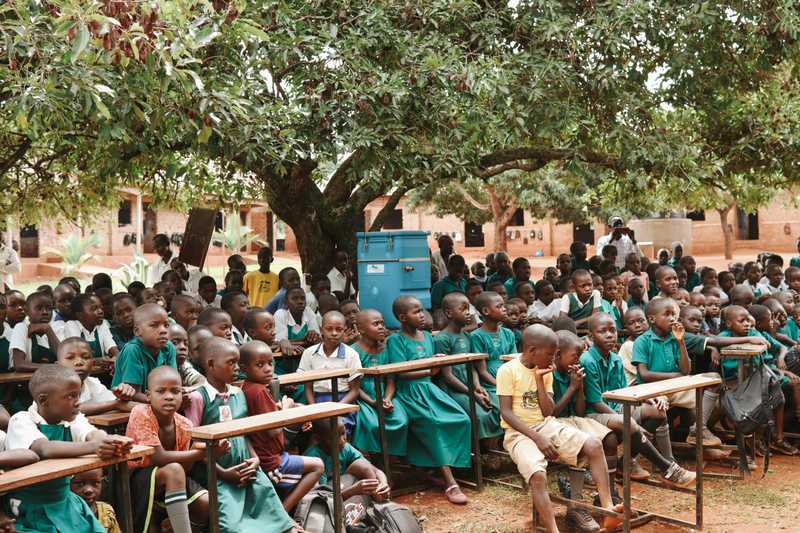For WeWater, Elizabeth Diego scouts villages at community level in Kenya that could use support to filter clean drinking water. Elizabeth actually works for the government in water management, attends international conferences on water issues and writes for community management journals. Her mother tongue is Luo, which is spoken in the Lake Victoria region. She knows this region well, albeit she currently lives and works in Nairobi. We spoke to her about her job, how she came to WeWater and where she sees opportunities and challenges in Kenyan water management.
Elizabeth, what is your job and how does that connect to WeWater?
I live in Nairobi, working for the government. We are a water resources authority, basically under the governmental ministry of water, and we are, for instance, responsible for sanitation questions. Though I am actually a sociologist.
What does your work entail exactly? And how does your expertise as a sociologist come into play there?
We are a technical organization: in our mandate we regulate the use of water resources across the country. We have hydrologists, geologists, chemists, engineers to undertake this. My department, however, is the community development department. We interact with the communities and conduct projects together with them through the government.
What does this process look like?
The people bring in the proposals, we check those, hand out contracts and take the funds to them to enable them to do the work. In doing so, our department is the one linked to the technicians who do designs and adapt proposals to what is feasible. I basically translate science to everyday language and people.
How did you get into this interesting field between science and community mediation?
My father worked in a similar field. Also, growing up on a farm, everything around me was related to environmental issues, which certainly played a role in developing my passion for those topics – but always with a link to community management.
So you wanted to follow these passions as a career?
Exactly. You can have all the science. But if you don’t have communities to undertake the work, then where does the science go? It’ll just disappear. As I did sociology in my undergrad, we had many internships in organizations, so I worked with street families and children. As opposed to just staying in the office, I want to be out there, helping, changing lives.
Why water economics?
Before landing here, I worked at the intersection of forests and communities, with a strong focus on accompanying the work with educational programmes in schools. This actually was a Dutch investment. After it ended, I went back to university for a Master’s degree in project climate management. And then it was another two years before I got into water management.
How did you get in touch with WeWater?
In 2015, I went to Delft in the Netherlands, the IHE (Institute for hydrological education), where I met a colleague, John, whom I kept telling to what we do and how passionate I was about water. We kept in touch since then. John knows Steven from WeWater. And this is how it started. Because as I told you, we do many projects across the country. But of course, everything we do across with the government is very strict, a lot of bureaucracy, the communities have to be registered and so on. We thought, WeWater was great to make an impact on a lower and more personal level.
What convinced you to work together with WeWater?
The moment Steve mentioned water filters that enable community members having access to clean water, I was right in it. When I checked the work they had done in Uganda, I quickly replayed in my mind how great it would be to have the same in Kenya. Being that I have always wanted to give back, this was opportune. And I have had engaged with communities who are in direct need of access to clean water as they take theirs from direct source as rivers, lakes, springs.
What exactly do you do for WeWater currently?
I support WeWater in identifying communities that are in most need of clean water and are interested in being supported with water filters with an assurance of taking care of them. I facilitate the clearance of the filters with its logistics to the final destination. I am also exploring on more partnerships on uptake of the filters.
Why is the work by WeWater and similar organisations necessary in the first place? Or bluntly asked: why doesn’t the government build pipes to ensure clean drinking water for its people?
It’s essential because it complements what the government already does and other partners’ resources can never be enough. To date there is improvement in water supply coverage and sewerage but it doesn’t reach all people equally yet.
Apart from your local and water economic expertise, what do you make sure to teach the NGOs coming to your country? Are there some things NGOs do wrong often? Especially as you know so much about communities that others might not.
As much as NGOs come with their priority interventions, most often it is better to give as well as take. Implement half the NGO’s agenda and for the rest: do what the communities propose as their needs to complement government projects. That way the NGO’s help is sustainable.
And out of interest and transparency: is there something WeWater could or should improve on?
The Kenyan citizens are very knowledgeable and open to ideas, they are also quite technically adept. The best WeWater can learn is how the communities engage and also the involvement of national and county governments in the activities. Some of the rules are very stringent.
What is the current biggest challenge regarding clean water in Kenya? Do you see solutions?
Access to clean water is still a bit of a challenge. Similarly, the protection of available water sources. Developing more water storage in good quality and quantity is necessary. And of course, engagement of communities in issues of environment and catchment conservation protection to ensure water in good quality and quantity.
What are further challenges? Especially as you have a great knowledge on climate issues, what is your outlook on the situation?
The main challenges we have in water as impacts of climate change is flood and drought. Floods destroy properties. Livestock and even people might die when drought sets in. The seasons have changed, which has affected food security. As you know, water is an enabler to most if not all developments. It’s more on engaging communities to adapt to climate change and resilience from the policies and programs including available data.
Do you see yourself working in this field perspectively? What are personal goals for you?
Most definitely, my goals are to make a positive change to a community translating their water needs dreams into realities of accessing water in good quality and quantity. I feel as this is what I need to do passionately as a way of giving my time to the communities. I am very passionate about learning from communities and trying to influence them better with their knowledge, with focus of conserving water and catchment areas sustainably.
